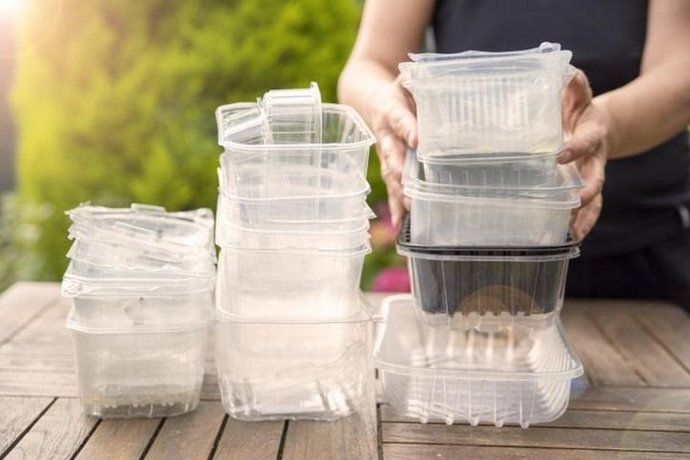A recent study by Swiss scientists has identified more than 200 compounds in plastic packagingsome with the capacity to migrate to food and then to the human body. These substances include aromatic amines, benzene and styrene, all of which are recognized for their relationship with tumor formation in both animals and humans.
According to the report, around 80% of these chemicals come directly from plasticswhich increases the risk of daily exposure. Furthermore, these substances have been detected in breast milk, human tissues and blood, underlining their ability to remain in the body.
plastic containers 1.jpg
Chronic risks of exposure to plastic chemicals
This finding, published in Frontiers in Toxicology, highlights the Connection between food contact materials and increased risk of breast cancer. Jane Muncke, co-author of the study and director of the Food Packaging Forum, warned that exposure to these compounds occurs in a constant and many times involuntarily, since they migrate from the packaging to the food we consume.
Of particular concern is the effect of these substances as endocrine disruptors, capable of altering sex hormones, posing a significant risk to women’s healthespecially in the early stages of his life.
The relationship between carcinogens and breast cancer
The study also identifies chemicals such as benzene, a known carcinogen linked to breast cancer; 4,4′-methylenebis-(2-chloroaniline), linked to bladder cancer; and 3,3′-dimethylbenzidine, which is used in the manufacture of plastics and paper. Additionally, PFAS, known as “forever chemicals” for their resistance to degradation, pose an additional threat. These compounds are found in packaging used to prevent leaks in fast food and beverage products.
Breast reconstruction alternatives after cancer

Benzene, a chemical widely used in food packaging, is directly linked to the development of breast cancer, underscoring the need for stricter regulation of its use, according to a recent study.
The analysis, based on more than 180 studies identified 76 substances with carcinogenic potential, of which 80% come from plastics. Among these carcinogens, some also have genotoxic properties, which means that they can damage DNA, increasing the risk of breast cancer.
This is not the first time that the link between plastics and health has been analyzed. A previous study, published in January of this year, already warned about the relationship between certain chemicals and the development of breast tumors, due to their ability to mimic or alter hormones.
Recommendations from experts to reduce risks
Faced with this growing concern, experts propose improvements in risk assessment and stricter measures to identify and reduce exposure to these hazardous substances. In fact, some European regulations have already begun to classify certain compounds as carcinogens and alimitate its use in mass consumption products.
He breast cancer It is the most common type of tumor in the world, with 2.3 million cases diagnosed in 2020according to the WHO. In Argentina, 10% of cases affect women under 40 years of ageaccording to the Argentine Society of Mastology.
Oncology experts, such as Dr. Diego Kaen, president of the Argentine Association of Clinical Oncology, point out that although exposure to these chemicals is worrying, other factors, such as Smoking and poor diet also influence the development of breast cancer.. The general recommendation is improve your diet, avoid the consumption of ultra-processed foods and adopt healthy habits to reduce the risk.
Furthermore, Kaen highlighted the importance of early detection as the best strategy to reduce mortality from breast cancer, with annual mammography starting at age 50 being a key tool.
Source: Ambito
I am an author and journalist who has worked in the entertainment industry for over a decade. I currently work as a news editor at a major news website, and my focus is on covering the latest trends in entertainment. I also write occasional pieces for other outlets, and have authored two books about the entertainment industry.




